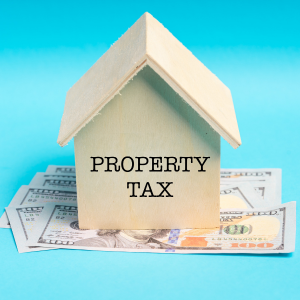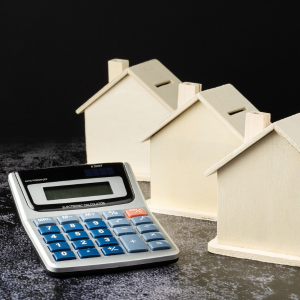
It can be overwhelming when one has to undertake complex real estate transactions due to tax consequences when selling real estate property in New Orleans, Louisiana. Actually knowing who owes what while selling will ease the burden, as it will ease and avoid surprise money outflows. This guide aims to inform and educate New Orleans homeowners about the various taxes owed, as well as to make them aware of potential exemptions, deductions, and filing requirements. Whether you are ready to sell your property and put it on the market or are just considering the option, knowing what we know will help you make informed decisions about your finances.
Key Highlights
- Sellers must understand local real estate market dynamics to price competitively and attract buyers swiftly.
- Capital gains from property sales are subject to federal taxes, which can affect profits; therefore, strategic tax planning is essential.
- Transfer tax responsibilities often fall on sellers, but they can be negotiated, which can impact the financial outcome.
- Local real estate professionals and resources provide critical insights into market trends and tax obligations.
- Proper property valuation and timing your sale can enhance net profits and streamline the transaction process.
Understanding the Basics of Selling a Property in Louisiana
Putting your home up for sale in Louisiana, particularly in New Orleans, is not a matter of just throwing your house on the market. There are state-specific regulations. There are several disclosure regulations that Louisiana homeowners are required to follow. Homeowners must learn how local property values, assessments, and regulations affect pricing. Homeowners should also consider that. Louisiana Community Property Law and Property Notary Law impact the home-selling process.
Sailing and knowledge of local regulations also make the process smooth and cost-effective. Property Taxes and how they are assessed every year by the local Assessor play a critical role in your bottom line. Other selling expenses, such as closing fees, capital improvements, and made repairs, impact your bottom line. Having a strong understanding of the sales process prepares the seller for a more positive sales experience.
For personalized guidance or help navigating the selling process in Louisiana, feel free to contact us—we’re here to make every step smoother and more manageable.
Key Considerations for Home Sellers
When selling real estate in New Orleans, you must grasp the intricacies of the local real estate market. This goes beyond just knowing the value of the home—understanding the market dynamics, the sales of nearby houses, the neighborhood, and the great diversity of local real estate will shape how to appropriately price and market your home. Reviewing recent comparable sales is essential to ensure your pricing is competitive and attractive to potential buyers.
Understanding Louisiana’s legal framework regarding property sales is essential for complying with the sale of real estate. The state’s disclosure laws require the seller to state defects, and for this reason, documentation must be precise and complete. Assistance from a qualified New Orleans real estate agent will be a great benefit in avoiding potential mistakes concerning these laws.
Lastly, consider the costs associated with this property, including outstanding sums, transfers, and fees determined by the assessor’s office. These expenses detract from your profit. Knowing your tax obligations and planning accordingly for your state allows for a more seamless and financially beneficial process.
The Impact of Property Taxes on Your Sale

Buyers and sellers are often affected by property taxes in Orleans Parish, and how they impact real estate sales. Those selling property in New Orleans need to understand how property taxes affect the transaction costs and net gains. Since the taxes levied are based on the property’s assessed value—which is subject to changes yearly—there is a direct and multiple impact on the expenses you will incur on closing the transaction and the amount you will profit at the end.
With the varying tax rates and detailed assessment methods in Orleans Parish, property taxes can appear quite complicated. Staying up to date with changing tax legislation and local regulations enables sellers to plan tactically. Tax professionals or knowledgeable real estate consultants can provide assistance in determining when to structure the sale and in planning how to address changes to tax liabilities.
Understanding how tax due dates correspond with your selling timeline is equally essential. Closing without updated and cleared taxes requires that you settle any outstanding taxes. At least 30 days before closing, you will want to communicate with the local assessor’s office, as this will allow you to avoid costs and likely result in an easier sale.
When selling property, it’s crucial to manage property taxes effectively to ensure a smooth transaction. Here are some strategies to streamline the process:
- Promptly assess upcoming property tax changes that could affect your sale. Being proactive about potential increases or decreases in property taxes can help you plan more effectively.
- Consult local tax advisors to gain insights into current tax regulations. They can provide guidance specific to your area, ensuring you are compliant with local laws and maximizing potential tax benefits.
- Review your property’s assessed value annually to catch any discrepancies. This regular check can prevent overpayment and alert you to tax adjustments that may impact your property’s market value.
- Seize opportunities when tax conditions are most favorable for sellers. Monitoring the market and tax climate will help you choose the best time to sell, potentially increasing your net proceeds.
- Settle outstanding tax dues before listing the property for sale. This ensures that buyers view your property as a clean slate, free from any lien risks that might deter potential offers.
- Sync your sales timeline with tax deadlines for optimal financial benefits. By planning your sale around fiscal dates, you can take advantage of tax breaks or avoid unexpected financial surprises at the last minute.
Incorporate these strategies into your selling plan to enhance your real estate transaction experience, reducing stress and potentially increasing the profitability of your sale.
Exploring Capital Gains and Gains Tax
When selling your home in New Orleans, Louisiana, understanding the financial ramifications of capital gains and the corresponding taxes is crucial in determining how much of the profit you can keep. Net proceeds are always diminished based on how much more your home is sold for over the adjusted basis and how much of that gain is subject to federal taxes. Knowing the ins and outs of capital gains and how they are calculated enables you to foresee and strategically plan for the costs that you will incur.
This section will focus on the head of the class and the most elementary components of capital gains as they pertain to real estate and the selling of the subject property. Mainly, how the tax is calculated and the degree to which this liability is affected by various components, including, but not limited to, the tax liability modifiers, the degree of tax liability, and the reviewed documents. This will enable you to have a better understanding of what will be available to you at the closing of your subject property. This, in turn, will have a significant impact on your bottom line.
Bertucci Investment Group makes selling your New Orleans property easy with a fast, hassle-free cash offer. We guide you through potential capital gains implications, help identify deductions, and ensure your paperwork is ready for a smooth, stress-free closing.
How Capital Gains Affect Your Profit
Profits that you make while reselling a property for more than its purchase price are known as capital gains, and in New Orleans, real estate capital gains could significantly affect your bottom line. When these gains are subject to taxes, capital gains taxes on the federal level will take a portion before the remainder is deposited. Since capital gains are realized on many other types of assets, including real estate, a strategy should be developed for selling property in Louisiana.
New Orleans accepts the federal guidelines on short and long-term capital gains. Rules for short-term capital gains apply to property disinvestments made within a year, at which point the gains are taxed as ordinary income. Conversely, long-term capital gains apply to property held for over a year, and these gains face preferential rates due to the lower dung of the income bracket. This variance in capital gains legislation leads to a greater variance in the total tax liability of NOLA real estate, which is why many NOLA homeowners seek the advice of tax advisors.
Homeowners should be aware of potential exemptions that can reduce their financial liabilities. The primary residence exclusion is a federal provision. Still, its applicability is contingent on the seller’s status as either single (with an exclusion threshold of $250,000) or married, filing jointly (with an exclusion threshold of $500,000). For each, the seller must have used the dwelling as their primary residence during the requisite timeframe. Such knowledge will be invaluable for New Orleans-based sellers in their effort to reduce overall taxation and increase home sale profitability.
Calculating Your Gains Tax

Louisiana real estate capital gains taxes begin by calculating the sales price of the property, then subtracting the purchase price, and adding any qualifying improvements to determine your adjusted cost basis. Detailed record-keeping and accurate bookkeeping of expenses, modifications, and upgrades to the property are vital for determining the actual gains and optimizing the taxes owed.
For federal capital gains taxes, property in New Orleans is based on the timeframe of property ownership and your income. After one year of property ownership, there are long-term and more favorable gain rates. Louisiana taxes and state-level tax obligations should be noted, as they could ultimately affect the amount owed.
Tax deductions and exemptions are certainly worth considering here as well. You may qualify for significant exclusions and/or exemptions which would reduce the amount of taxes owed, if any, if the home was your primary residence and satisfied the requirements set by the IRS. A tax professional with experience in Louisiana real estate would be best for dealing with the hardships of these types of regulations and help you properly obtain the benefit.
Most importantly, timing plays a significant role in the amount of taxes owed, and selling the home during a lower tax bracket year would be more ideal. You should be able to correctly determine the appropriate timing and numbers to close the sale of the home, thereby reducing tax burdens and maximizing the profit you would retain from selling a home in New Orleans, by properly planning and accurately calculating the numbers.
Nuances of Transfer Tax and Transfer Taxes
When selling real property in Louisiana, a Seller’s knowledge about the intricacies of the state’s transfer taxes and other related real estate fees is essential, as these fees are a part of the closing costs and affect the cost/financial structure of selling a property. Understanding the transfer taxes and when they are incurred helps a Seller know what to expect when selling their property, thus allowing them to proceed to the listing phase more confidently.
This part of the text is also about who among the real estate attorneys is required to pay transfer taxes in the state of Louisiana and how these tax responsibilities can be transferred (or given away) to someone else. Understanding this helps Sellers anticipate closing costs more accurately and thus should be able to optimize a net profit from the real estate sale when closing a sale in the New Orleans real estate market.
Understanding Transfer Taxes in Louisiana
Transfer taxes, often overlooked, are an essential part of the property sale process in Louisiana. These taxes apply whenever property ownership shifts from seller to buyer and are based on the real estate’s value, typically calculated as a percentage of the sale price. As a result, higher-value properties incur higher transfer taxes, making it essential for sellers to factor this cost into their budget — especially when working with investor home buyers in Metairie, New Orleans, and other Louisiana cities.
The Louisiana Assessors’ Association uses a seller’s office (and only seller’s office) sales data to compute a transfer tax based on fair market value. New Orleans sellers must be aware of these assessments, as they can sometimes be incorrect, resulting in prolonged essential time and/or conflicts. New Orleans and the surrounding parishes have local laws as well, and being informed of these can save sellers from unpleasant surprises.
Sellers should consider additional fees, such as recording and/or documentation fees, that can accumulate. It benefits sellers to involve professional real estate agents and/or legal services to assist in simplifying the task. It is prudent to involve the assessor’s office to confirm their computations and applicable tax rates. Sellers who understand transfer taxes can balance their costs and have a more straightforward thought process for managing the sale.
| Aspect | Details | Impact | Actionable Tips |
|---|---|---|---|
| Transfer Tax Requirement | Louisiana does not impose a state-level real estate transfer tax. | Sellers and buyers benefit from reduced costs compared to states with such taxes. | Leverage cost savings in negotiations for a favorable sale/purchase price. |
| Local Government Policies | While there is no state transfer tax, verify if any local municipalities have specific requirements. | Varies by locality, potentially introducing unexpected costs. | Consult a local real estate attorney or agent to confirm municipal regulations. |
| Documentation Fees | Recording fees may apply for official documentation, varying by parish. | These fees add to the closing costs of the transaction. | Budget for and inquire about potential fees with a local title company. |
| Exemptions & Incentives | Certain transactions may qualify for tax exemptions or incentives, although they are limited in this category. | Potential savings if eligible, impacting overall financial outcome. | Investigate eligibility criteria early to maximize potential benefits. |
This table offers a clear overview of transfer taxes in Louisiana real estate transactions, outlining key details and practical tips. By understanding the absence of state transfer taxes, possible local obligations, and related fees, buyers and sellers can better plan and optimize their strategies.
Who Is Responsible for Paying the Transfer Tax?

Determining who pays the transfer tax in a New Orleans real estate transaction is essential for both buyers and sellers. While the seller typically covers this cost, it can be negotiated, and it’s common in Louisiana for both parties to agree on splitting the expense. Whatever the arrangement, it should be clearly outlined in the sale contract to avoid confusion at closing.
In the New Orleans market, even local traditions influence who pays what. To gain customers and close sales more quickly in the competitive New Orleans market, sellers may choose to absorb the cost of the transfer tax. Yet, in fast-moving markets, sellers might take the opportunity to convince buyers to absorb some (or all) of the price. To understand these factors, the sellers can therefore act more tactfully.
Such requirements are also determined by law. There are Orleans Parish assessor directives, and sellers need to pay any taxes due before closing to avoid hassles and/or delays. There are experienced local agents who possess knowledge of Louisiana real estate law to assist with and document these taxes.
Ultimately, sellers benefit from addressing transfer tax responsibilities early. Explicit negotiation and documentation help avoid disputes, streamline the closing process, and support a smooth, successful property sale in New Orleans.
Final Tips for Home Sellers
If you take the right actions, selling your property in New Orleans doesn’t have to be overly complicated. Here, we will outline the best means to maximize your profits, ranging from your sale price to timing the sale for when the market is most favorable. Your realistic expectations, grounded in knowledge of market conditions, will allow you to engage with prospective buyers optimally and make the entire selling process more efficient.
Valuable tools tailored to Louisiana homeowners, including local assistance, legal and tax guidance, and compliance resources, have been compiled to help you make more informed decisions and streamline the entire process. Let’s outline those tools and the actions they will allow you to take so that you can maximize your New Orleans sale profit.
Maximizing the Profit from Your Property Sale
To maximize profit when selling your New Orleans property, take a strategic approach that considers both market conditions and tax responsibilities. Begin by conducting a precise assessment of your home’s market value, which involves reviewing comparable sales and local market trends, including shifts in buyer preferences and emerging hotspots. Partnering with an experienced New Orleans real estate agent—or working with a company that buys houses in New Orleans and other Louisiana cities—can help refine your pricing strategy and secure a firm offer.
Once you have completed the pricing analysis, you can shift your focus to reducing closing and taxation costs. New Orleans closing costs, which include but are not limited to title insurance, attorney fees, and transfer taxes, are expenses you would not like to incur. Through negotiation, you can reach an agreement with the buyer about which costs are to be borne by whom. In high-stakes bidding wars, sellers will take it upon themselves to cover the expenses to minimize delays and expedite the transaction. However, it is not always beneficial to do so, as it can result in a lack of margin flexibility to recuperate costs in the selling price.
Also, take the time to assess your position regarding capital gains taxes. Keeping in mind circumstances for which you can be exempt, like the primary residence exclusion, will help you derive the take-home selling profit. If you are a long-time owner, you can time the sale to coincide with your lower income tax bracket year or simply reinvest the proceeds in a purchase to lower your overall gains tax.
Ultimately, preparing your home for the market with basic renovations and strategic staging will make it more appealing to a broader buyer base, which in turn will help sell the house for a higher price. Properly maintaining the equipment will also have a positive effect. The home will have a more detailed report and a more favorable outcome with the taxes, which will ultimately result in a more profitable experience.
Additional Resources for Louisiana Homeowners
As a home seller in Louisiana, utilizing the appropriate local tools can streamline the process and yield greater economic benefits. Your first stop should be the city council offices and real estate boards in New Orleans, as they typically offer workshops and seminars on the market, the law, and best practices. You can also consult local real estate professionals to help customize your efforts to the current market situation.
To obtain the most accurate property valuations and tax assessments, engage with the state assessor’s office as early as possible. This information is essential for guiding you in setting a competitive price for your home and calculating your net proceeds after tax.
The consultants who help people with taxes or any legal issues with real estate in New Orleans, most of them will know lots about capital gains, transfer taxes, and what exemptions like the primary residence exclusion, and so on, will help you out financially more than spending on legal and tax issues.
Finally, the Louisiana Real Estate Commission includes online material clarifying state-specific methodologies and documentation requirements. Utilizing these resources while staying in touch with local professionals can help ensure a smoother and more lucrative sale, while adhering to Louisiana laws.
Navigating the taxes associated with selling a house in New Orleans, Louisiana, doesn’t have to be overwhelming. By understanding your obligations, including potential capital gains tax, transfer taxes, and any applicable state or local fees, you set yourself up for a smoother transaction. Consulting with a local real estate expert or tax professional ensures you’re compliant and potentially minimizes your tax liability. Whether you’re aiming to maximize your profit or simply achieve a successful sale, aligning your strategy with tax insights can make a significant difference. Consider downloading our free tax guide to help you plan your sale effectively.
FAQs:
Who is responsible for paying taxes when selling a house in New Orleans?
The responsibility for paying taxes during a property sale in New Orleans usually falls on the seller, but this can be negotiated between the buyer and the seller. Transfer taxes are often a part of this financial obligation, and it’s essential to specify in the sale contract who will handle these costs.
What is capital gains tax, and how does it affect home sales in New Orleans?
Capital gains tax is applied to the profit earned from selling a property. In New Orleans, as in the rest of the US, this tax affects your net profit from a sale. The rate and liability depend on how long you’ve owned the property and your income tax bracket. Consulting with a tax professional can help optimize your tax situation.
Are there any exemptions for capital gains tax when selling a home in New Orleans?
Yes, the federal tax code allows exemptions if you’ve used the property as your main home and meet specific criteria. You could exclude up to $250,000 of gains ($500,000 for married couples filing jointly). Meeting these conditions can significantly impact your tax obligations and increase your take-home profit.
How are property taxes calculated in New Orleans?
The local assessor’s office assesses property taxes in New Orleans based on the property’s assessed value, which may change annually. These taxes are crucial components of the selling costs and can affect profits. Staying informed about changes in tax laws is also essential for strategic planning.
What is the role of a real estate agent in a New Orleans property sale?
A real estate agent familiar with the local market can guide you through pricing strategies, legal requirements, and tax obligations. Their expertise is invaluable in navigating the complex processes, ensuring that all legal obligations are met, and helping you maximize your financial outcomes from the sale.
Need to sell your house fast? Whether you want to avoid repairs, skip the stress, or simply prefer a straightforward, hassle-free sale, Bertucci Investment Group is here to help. We provide fair cash offers, manage all the details, and ensure a smooth, straightforward process. Do you have questions, or are you ready to get started? Call us at (504) 920-4747 for a no-obligation cash offer today.
Helpful New Orleans Blog Articles
- Selling a Home That Needs Repairs in New Orleans, LA
- How to Sell an Inherited House in New Orleans, LA
- Who Pays Taxes When Selling a House in New Orleans, LA
- Can You Sell a House with Tenants in New Orleans, LA
- Can I Sell A House with A Quitclaim Deed in New Orleans, LA
- Do I Need a Lawyer to Sell My House in New Orleans, LA?
- Selling a House with Foundation Problems in New Orleans, LA
- Escrow When I Sell My Property in New Orleans, LA?
- Selling a House with Termite Damage in New Orleans, LA
- Selling a House As-Is in New Orleans, LA
- Sell Your New Orleans, LA, Rental for Cash
- How to Sell a House with Title Issues in New Orleans, LA

